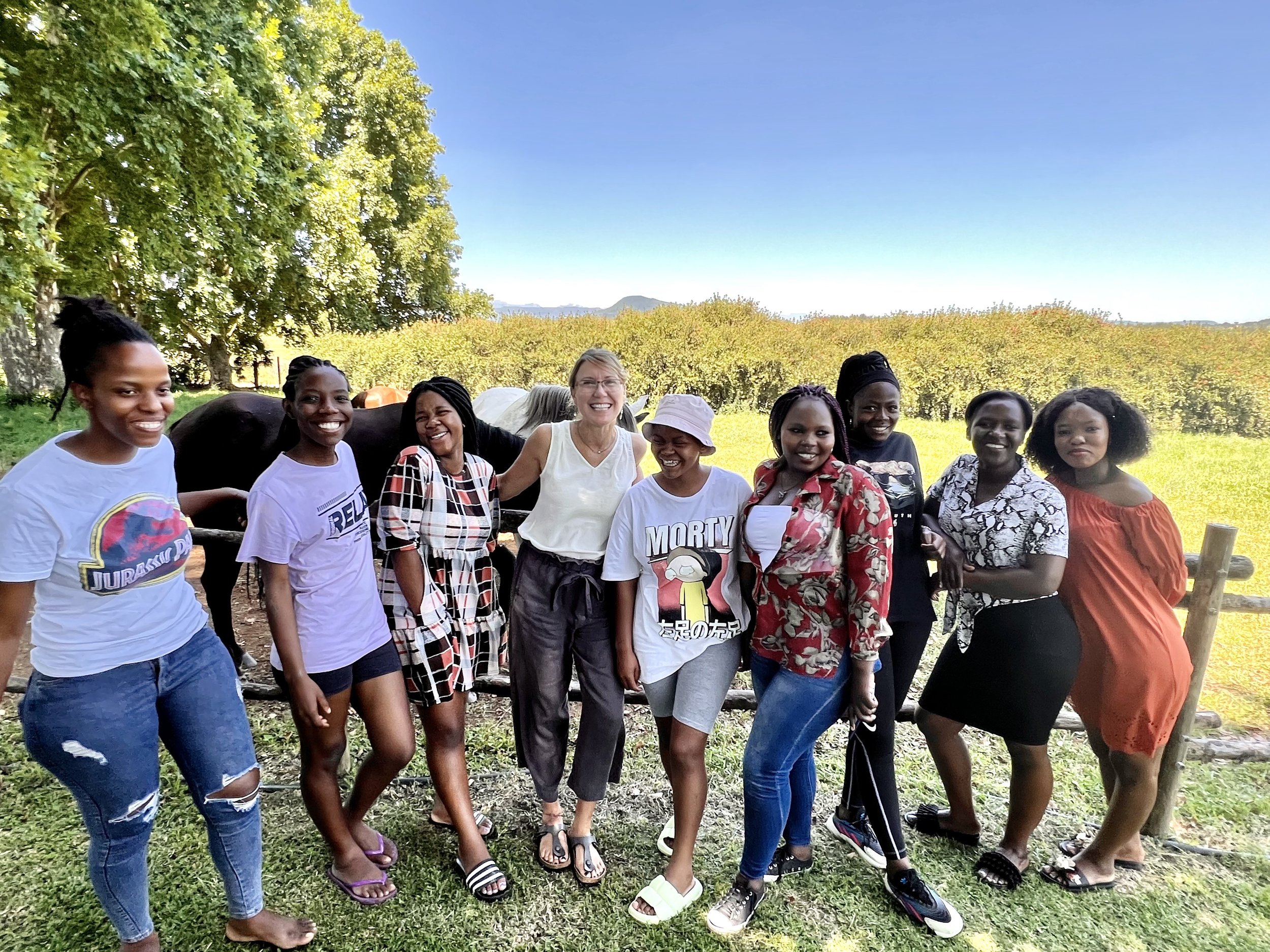Be Strong, Be Wise in Kwazulu-Natal
Shared Learning and Discovery in “The New South Africa” and the impact of American Porn on South African Youth
Aside from the rolling green hills reminiscent of Ireland or Scotland, and the majesty of the Drakensberg Mountains, rising like cathedral spires in the distance, the Zulu people are an intricate part of the beauty of the surroundings here. True of all South Africans but especially Zulus, there is a warmth that any traveler will quickly notice. This gentility, perhaps most impactful to my American sensibilities, lacks a fundamental human quality I’ve grown used to in the states: apprehension.
Whereas in the U.S. we are quick to assess other people’s motives and how they may or may not impact ours, Zulus - who continue to struggle in the post-Apertheid era - have much they can teach. They certainly have taught me.
But I’m not here to conduct an analysis of the culture. I’m here to be with two of my favorite people, JD and Barbara (BB) Borgman, who live on the verdant hills of Inqaba Farm at the base of the Drakensberg.
And I’m here to teach. Since JD and BB have devoted decades of their life to assisting Zulu children orphaned by the AIDS epidemic, I have the honor of teaching these children (now young adults) the fundamentals of the Be Strong, Be Wise curriculum. We have mostly focused on the core of the course: how to listen to the body’s signals; communicate the boundaries those signals represent; and respect the boundaries of others.
My experience here has involved a mutual exchange of ideas and sociocultural truths. For what is true in America will not necessarily be true in South Africa, a country estimated to be – especially with the atrocity of Apartheid tainting its history and economic stability- fifty years “behind” the U. S.
However, as with much of the world, there are unfortunate similarities to these two countries as well. Since America is the media super-power, I’ve been exploring how that influence has impacted the Zulu people. As BB states, “Everyone here watches American news and American media.”
So, I’ve been talking to as many people as I could, asking the same fundamental question: What effect has social media had on the youth of the country? It turns out the problems here are exactly the same as they are in the States. How could they not be, when South African youth, like youth around the globe, turn to America for entertainment, news, and unfortunately, pornography.
A two-second google search yielded the following statistic: “The United States is the undisputed No. 1 country in terms of hosting internet pornography.”
These porn sites, estimated at 28 million in the U.S., and prompting more than 69 million daily searches, are having a more devastating impact on South Africa, where femicide - the killing of women - is at an all-time high and where law enforcement is minimal and the Government, corrupt.
“What about the fact that women are seen as the pillars of society?” I asked BB, having learned about the honoring of women in Zulu culture. “Well,” she replied, “There are many who would piss on those pillars.”
No studies are being done on why there is a rise in femicide in South Africa. But one can take an educated guess, based on the increase in assaults among teens in the U.S. and the recent report from the U.S. Department of Education that in America, teens are the demographic most at risk of assault.
Pornography videos, 88% of which contain violence against women, principally in the form of spanking, gagging and hitting, have severely impacted the sexual experiences and expectations of the average teen. Since America is the media super-power, the “average teen” can live anywhere in the world.
Young people circling the globe are learning that intimacy equates with violence and that rough sex is normal. Of course, this will translate to higher incidents of assault in the U.S. and higher rates of femicide in South Africa, a country that, mighty as it is, still struggles with finding true democracy in a post-Apartheid world.
Femicide, rape and teen pregnancy are all ongoing issues here, which is why many concerned leaders are devoting immense time and energy to addressing a problem the Government has forsaken: the next generation and the rights of women.
The reality for youth here is almost mind-numbing and at first, I felt my confidence flagging. I thought: Who am I, a woman of privilege from a country of privilege, to come in and “teach” these young people when I have no idea what they have been through and what they know?
But then I remembered the words of BB’s friend, Dr. Edward Nambassi, a gynecologist from Durban, South Africa: “As I read Be Strong, Be Wise for the first time, I could not help but draw parallels with our own situation here in South Africa… (Given) the teenage pregnancy problem in our country, this tool adjusted for our cultural differences, could be used to reduce the same…My interactions at work with young mums to be, a couple as young as 12, have left an ache in my heart. Some of these children, because that is what they are, children, are bewildered and have no idea what has happened to them.”
The BSBW workshop with Zulu young women was one crucial element in trying to plant the seeds of change. It was thrilling to watch them role play with each other how to stand firm, fight back or flee when in danger. And to witness their self- discovery. When I asked, “What did you learn about yourself in the role play?” one young woman bravely admitted, “I learned that when someone looks powerful, I become weak.”
I praised her, “That is beautiful self-awareness! Now that you know that about yourself, you can practice being powerful, so you can use that power even when you feel scared.”
These young women may have been new to the idea of role play and developing a “script” for communicating boundaries, but they are in abundant possession of another safety tool: sisterhood.
When presented with the scenario of a friend drinking too much at a party and men coming on to her in a dangerous way, the group was adamant: “We would drag her out of there kicking and screaming if we had to!” I made a note to remind my American students of this declaration.
Following the workshop with young women we held a day-long workshop with NGO (Non-Government Organization) youth leaders. Here there seemed a more far-reaching opportunity for change, as the group responded to the fundamentals of the BSBW train-the-trainer course. One such leader said “There is no such thing as statutory rape in deep, dark Africa.” Another remarked that the police are often corrupt, and with a rise in violence, have virtually ignored certain areas of Zulu society.
The workshop included the same role plays the youth leaders will invite their students to do, especially the young men. Role plays such as: What do you do when a friend is drunk, and making sexual comments to women? Or; What do you do when a girl you’re interested in doesn’t return your texts and looks uncomfortable around you? Or; What choice will you make when you learn that men in their twenties report that pornography “ruined” their relationships with women?
What was most inspiring was the exchange of ideas that followed the afternoon’s activities. “We need to bring in the pastors,” said one youth leader. “And let’s invite the quality members of the police force,” said another. Still another remarked, “I will definitely bring this to my seventh-grade curriculum at the local school.”
All of these steps will take place when I am back in the states, doing the same work these youth leaders will do here. But the seeds have been planted, and the encouragement to return, offered. As one NGO director commented, “When you come back we will take it to the next level.”
I surely hope I do.
*For more information on the Be Strong, Be Wise course for educators, counselors and youth leaders, go to https://www.bestrongbewise.com/programs-for-educators
Empowered Teens Are Safe Teens!


